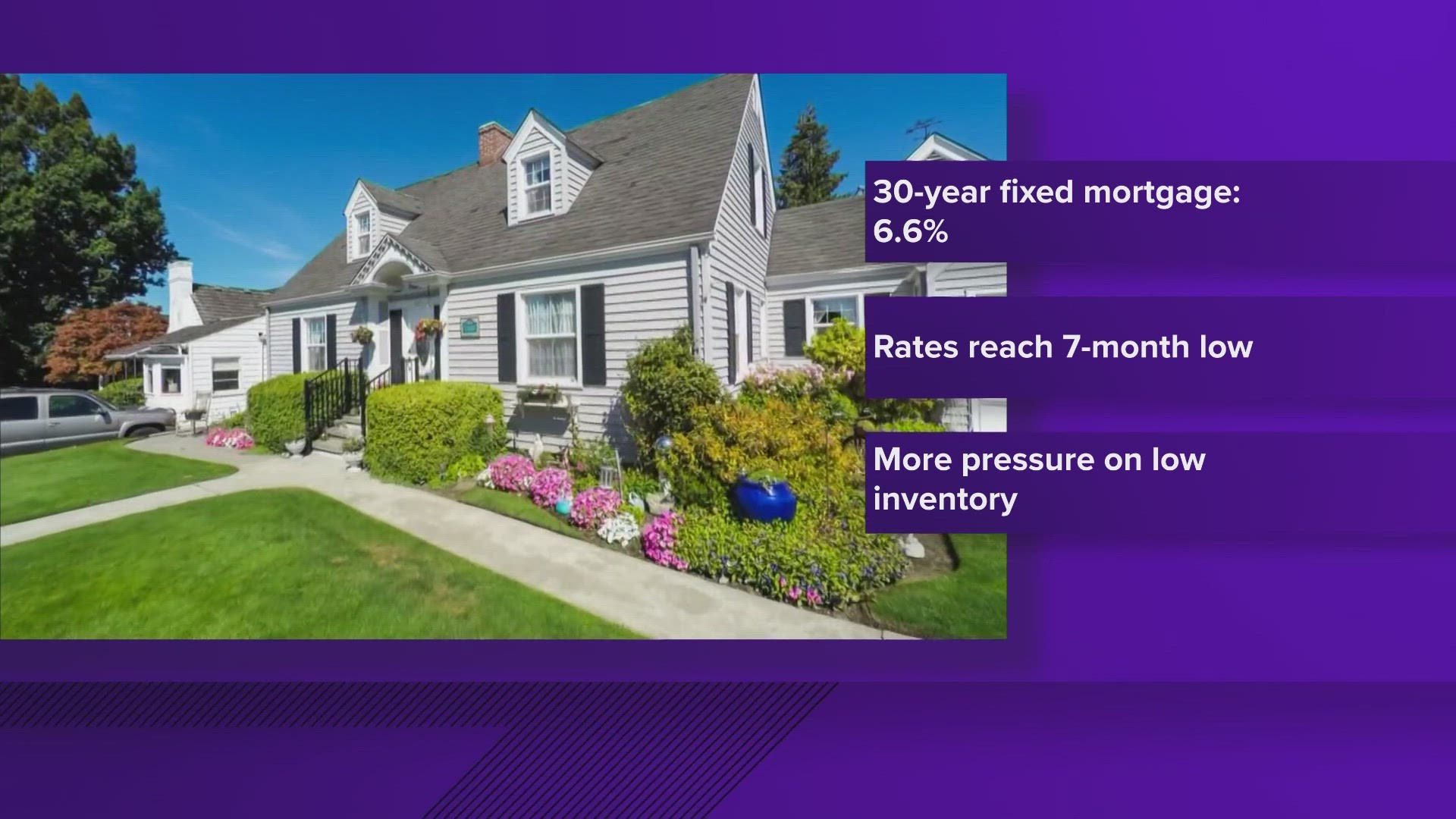LOS ANGELES — Sales of previously occupied U.S. homes sank in 2023 to a nearly 30-year low, as sharply higher mortgage rates, rising prices and a persistently low level of homes on the market combined to push homeownership out of reach for many Americans.
The National Association of Realtors said Friday that existing U.S. home sales totaled 4.09 million last year, an 18.7% decline from 2022. That is the weakest year for home sales since 1995 and the biggest annual decline since 2007, the start of the housing slump of the late 2000s.
The median national home price for all of last year edged up just under 1% to record high $389,800, the NAR said.
Last year’s home sales slump echoes the nearly 18% annual decline in 2022, when mortgage rates began rising, eventually more than doubling by the end of the year. That trend continued in 2023, driving the average rate on a 30-year mortgage by late October to 7.79%, the highest level since late 2000.
The sharply higher home loan borrowing costs limited home hunters' buying power on top of years of soaring prices. A dearth of homes for sale also kept many would-be homebuyers and sellers on the sidelines.
Mortgage rates have been mostly easing since November, echoing a pullback in the 10-year Treasury yield, which lenders use as a guide to pricing loans. The yield has largely come down on hopes that inflation has cooled enough for the Federal Reserve to shift to cutting interest rates this year.
The average rate on a 30-year home loan was 6.6% this week, according to mortgage buyer Freddie Mac. If rates continue to ease, as many economists expect, that should help boost demand heading into the spring homebuying season, which traditionally begins in late February.
Still, the average rate remains sharply higher than just two years ago, when it was 3.56%. That large gap between rates now and then has helped limit the number of previously occupied homes on the market by discouraging homeowners who locked in rock-bottom rates from selling.
“We need more inventory to get the market moving,” said Lawrence Yun, the NAR’s chief economist.
Despite easing mortgage rates, existing home sales fell 1% in December from the previous month to a seasonally adjusted annual rate of 3.78 million, the slowest sales pace since August 2010, the NAR said.
December's sales fell 6.2% from a year earlier. Last month's sales pace is short of the roughly 3.83 million that economists were expecting, according to FactSet.
“The latest month’s sales look to be the bottom before inevitably turning higher in the new year,” Yun said. “Mortgage rates are meaningfully lower compared to just two months ago, and more inventory is expected to appear on the market in upcoming months.”
Home prices rose for the sixth straight month in December. The national median home sales price rose 4.4% in December from a year earlier to $382,600, the NAR said.

